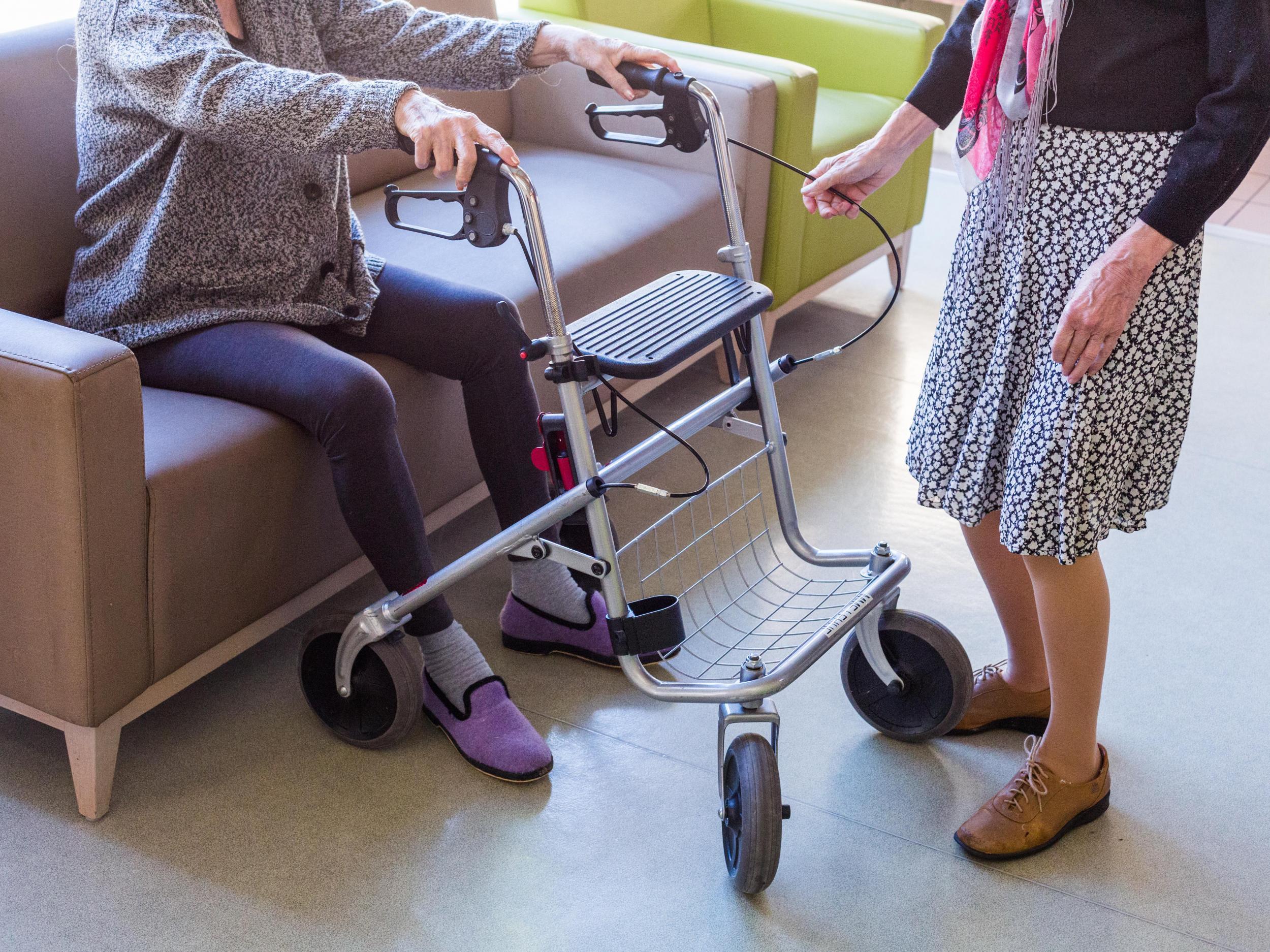Number of elderly people deprived of vital support hits record high, finds report
More than 1.4 million over-65s now struggling without help they depend on to carry out basic tasks as charities and councils call for 'vital' funding boost in adult social care

The number of older people who are not getting the care and support they need has hit a record high, with one in seven now living with some level of unmet need, according to a new report.
More than 1.4 million people over the age of 65 are struggling without the help they depend on to carry out basic tasks such as getting out of bed, going to the toilet and washing themselves, the findings, from charity Age UK have revealed.
This marks a 19 per cent increase in unmet need since 2015.
Delayed discharges from hospital due to social care not being in place costs the NHS £289.1m a year - the equivalent to £550 per minute, the report also found.
It is "sheer folly and wastefulness" that the government was not investing the same funds in social care as it was in health, said Age UK's charity director Caroline Abrahams.
“The extra funding announced recently for the NHS is warmly welcome, but it will do a lot less to help our GPs and our hospitals than it should do for as long as the government allows social care to continue to decline,” she said.
"We all depend on the NHS so we all lose out if it has less money to spend due to the lack of social care, but there is no doubt that it’s our older population who are paying the highest price of all – with their health, their happiness and sometimes even their lives.”
The research shows that 307,581 elderly people require help with three or more essential activities, of whom 164,217 receive no help whatsoever from paid carers, family members or friends.
Ms Abrahams said the Social Care Green Paper, set to be published in the autumn, would not “in and of itself” deliver any new funding for social care for several years.
It was obvious that the system was in need of a major injection of cash, she added.
“Many older people with health problems need some care and support and vice versa. It's high time the government saw health and care as one whole system and provided the resources needed by both," she said.
It comes after a report from MPs last month called for a “social care premium” for England to address social care costs.
The aim of the system would be to ensure the personal element of social care – such as washing, dressing and eating – is eventually available free at the point of delivery to everyone who needs it, although accommodation costs would continue to be means-tested.
Social care was badly hit by government cuts to council budgets and stretched services are also heaping pressure on the NHS as there is not enough capacity to support people at home when they are well enough to leave hospital.
Cllr Izzi Seccombe, chairman of the Local Government Association’s community wellbeing board, said that in order to prevent crises in the NHS, the government needed to plug the £3.5bn funding gap facing adult social care by 2025 and reverse the £600m in reductions to councils’ public health grants between 2015/16 and 2019/20.
“People’s unmet care needs will continue to increase and deepen the crisis in adult social care unless the sector receives a long-term funding settlement, like the NHS, and further funding is made available for council’s public health and prevention services," she said.
“Crucially, we need to address the root causes of ill-health and loss of independence as well as the symptoms of system pressures, such as growing demand on our hospitals. Investment in councils’ prevention work in our communities is vital in reducing demands on the NHS and will save money to the public purse.”
A report released by the Commons Public Accounts Committee (PAC) in May found little evidence that the existing, lightly regulated private care market was helping to deliver care in an affordable manner.
It found evidence that care was being prioritised to people needing the most support and care packages for people with moderate needs, such as an older person at risk of falls or becoming malnourished, was taking longer.
A spokesperson for the Department of Health and Social Care said: “No one should be stuck in hospital when their treatment has finished. We expect the NHS to work closely with local authorities to ensure people are treated in the most suitable setting and when they are discharged from hospital they have a care plan in place.
“The government has committed to a long-term plan with a sustainable multi-year settlement for the NHS to help it manage growing patient demand. Health and social care are two sides of the same coin and reforms must be aligned. That’s why our forthcoming green paper will be published in the autumn alongside the NHS plan.”
Join our commenting forum
Join thought-provoking conversations, follow other Independent readers and see their replies
Comments
Bookmark popover
Removed from bookmarks